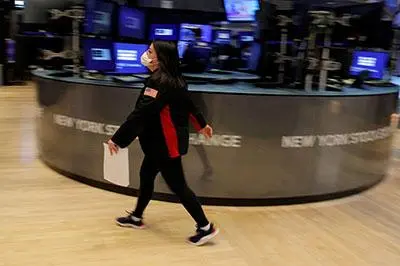PHOTO
(The author is a Reuters Breakingviews columnist. The opinions expressed are his own.)
NEW YORK - As new U.S. antitrust tsar, Lina Khan has hinted at some expansive new thinking when it comes to challenging big mergers. But Lockheed Martin’s failed acquisition of Aerojet Rocketdyne shows that for now, the old thinking still holds true too.
Lockheed dropped its $4.4 billion deal for Aerojet after a lawsuit from the Federal Trade Commission, which Khan chairs. Earlier this month, semiconductor giant Nvidia walked away from its $40 billion deal for UK chip designer Arm after a similar challenge. On one hand, both of these were so-called vertical deals, where a customer buys a supplier rather than a rival. Those are less frequently challenged by regulators.
On the other hand, the FTC’s opposition to both deals follows a familiar template. In each, an acquirer was set to buy a uniquely important supplier to its peers. Antitrust enforcers have protested against such issues before. Though the FTC approved Northrop Grumman’s 2017 purchase of Orbital ATK, it said it did so for the benefit of the Department of Defense, despite concerns. It also challenged firm Illumina’s vertical deal with Grail. And in 2017, the Department of Justice tried to prevent AT&T from acquiring Time Warner.
Meanwhile, in areas that companies and their investors feared radical change, little has happened. The market priced in substantial antitrust risk to a variety of pharmaceutical mergers – all of which passed muster. The Department of Justice allowed media giant Discovery’s merger with WarnerMedia, even after members of Congress raised concerns.
Khan wants to enlarge the FTC’s notion of what constitutes an unacceptable merger, as shown by efforts to discard current guidelines for analyzing deals and start from scratch. Yet so far, there’s no evidence of a big shift. Instead Khan has moved deliberately, issuing enforcement actions at a relatively slow pace while racking up uncontroversial, bipartisan votes on deals.
That’s made it seem like much of the shift at the FTC has been about preventing transactions before they’re announced, rather than after. But two vertical deals by tech giants – Microsoft’s $69 billion purchase of gaming group Activision Blizzard and Amazon.com’s $8.5 acquisition of movie studio MGM – are now under review. The agency’s decisions on these deals will show whether Khan is sticking to the old script, or perfecting a new one.
CONTEXT NEWS
- On Feb. 13, defense giant Lockheed Martin said that it had terminated its $4.4 billion agreement to acquire rocket maker Aerojet Rocketdyne. The Federal Trade Commission had sued to block the deal on Jan. 25.
- Semiconductor company Nvidia said on Feb. 7 that it would abandon its agreement to acquire Arm. The FTC had sued to block the $40 billion deal on Dec. 2.
(The author is a Reuters Breakingviews columnist. The opinions expressed are his own.)
(Editing by John Foley and Sharon Lam) ((For previous columns by the author, Reuters customers can click on GUILFORD/ SIGN UP FOR BREAKINGVIEWS EMAIL ALERTS https://bit.ly/BVsubscribe | Jonathan.Guilford@thomsonreuters.com; Reuters Messaging: Jonathan.Guilford.thomsonreuters.com@reuters.net))





















